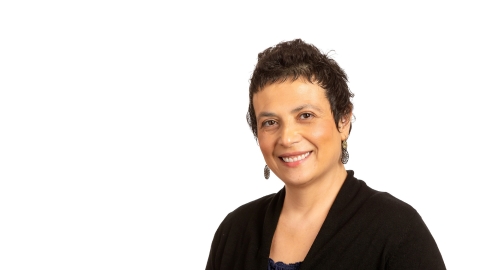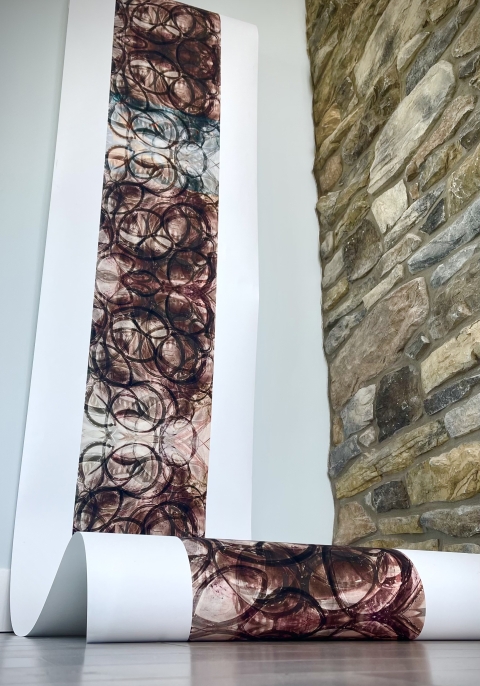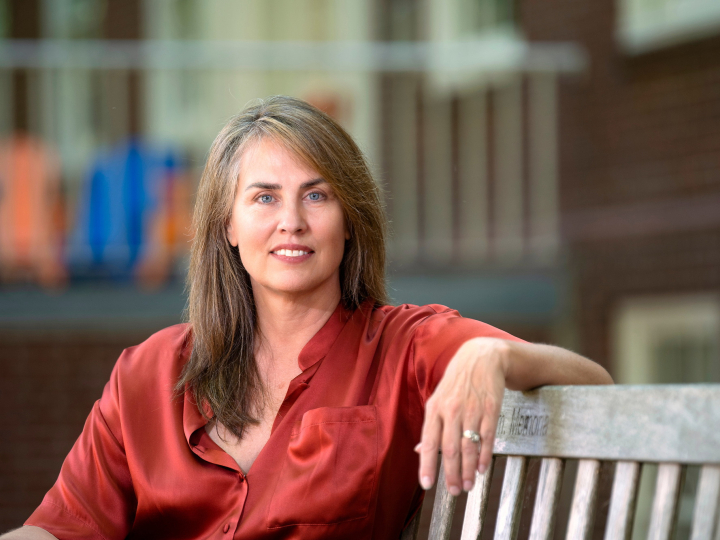
Bucknell's Bayar Explores Immigrant 'Otherness' in New Istanbul Exhibit
January 9, 2024
Professor Tulu Bayar, art & art history, the department chair. Photo by Douglas Kilpatrick
Tulu Bayar believes art can provide new meaning to complex topics, such as the immigrant experience and the clash of cultural differences in the Gaza conflict. The Bucknell University professor of art & art history will broadly explore these topics through a new exhibition in her native Turkey, focusing on cultural hybridity — the otherness of immigrant identity, or how people view these hybrid identities as "the other."
Bayar's exhibit will open Wednesday, Jan. 10, and run through February in the Ferda Art Platform in Istanbul, Turkey. Her work is particularly relevant in today's global climate, where issues of identity, immigration and cultural hybridity are at the forefront of societal discourse.
"People find 'the other' very exotic, but there is also this continuity. Of course there are differences, but there are similarities as well, and those similarities and differences often manifest as 'the other' in others," says Bayar, who is also chair of Bucknell's art & art history department. "So I'm really interested in exploring this topic [hybridity] in whatever I do, whether I am directly working with a very didactic, pragmatic subject matter — such as the Middle East issue — or a little more philosophical view where everything is connected."
Exploring Cultural Otherness
Bayar has been exploring the "otherness" topic for some time. Her 2004 work Settlement is a multi-channel video projection that delves into the intricate dynamics of water scarcity in the Middle East, particularly among Jewish and Muslim communities sharing the same land. The work features two women, one Jewish and one Muslim, engaging in spiritual cleansing rituals unique to their respective faiths, all while peacefully sharing a jug of water.
"The essence of the work lies in its exploration of the profound connection between water, land and the political complexities of the Middle East," Bayar says. "Growing up in an environment where water scarcity was a persistent issue, I aimed to shed light on this often overlooked and under-discussed problem. While acknowledging that water scarcity is not the sole challenge faced by the region, I wanted to emphasize its symbolic and historic significance, making compromise and agreement challenging for both communities."
While Settlement will not appear in her Istanbul exhibition, Bayar was invited to show in the Ferda Art Platform because of her focus on the immigrant experience. It comes at a time when the world is grappling with the realities of immigration and identity, and the art world is part of these broader societal discussions.
The exhibit seeks to shed light on these experiences, offering a nuanced exploration of the immigrant identity and the concept of "otherness." Through her art, Bayar hopes to foster a deeper understanding and empathy toward those grappling with these issues.
Taking a Philosophical View

'Infinity' is a piece featuring Giant scrolls cascading down the walls. Photo by Tulu Bayar
Bayer's exhibit presents a more philosophical view of the theme through photography, video, drawing and sculpture to reflect the complex intersections of diversity, the immigrant experience, hybrid identities and otherness.
"I am not really approaching it from a religious point of view but rather from a philosophical point of view because there's this continuity where people are very much connected, so that's why my interest is in focusing on the similarities rather than differences we come from," she says. "You see that holistic view in the whole space and the exhibition."
She has assembled diverse elements — salvaged images, personal photographic archives, photographic films, old drawings, maps, repurposed textiles and cultural belongings — which are then infused with new life. Giant scrolls cascade down the walls, anchoring the space amid Bayar's photographic sculptures.
Bayar just closed a similar show with the cultural hybridity theme last month at Amos Eno Gallery in Brooklyn, N.Y. She considers the new exhibition to be a continuation of that show, although she's left the door open for late additions based on thematic events of the times.

